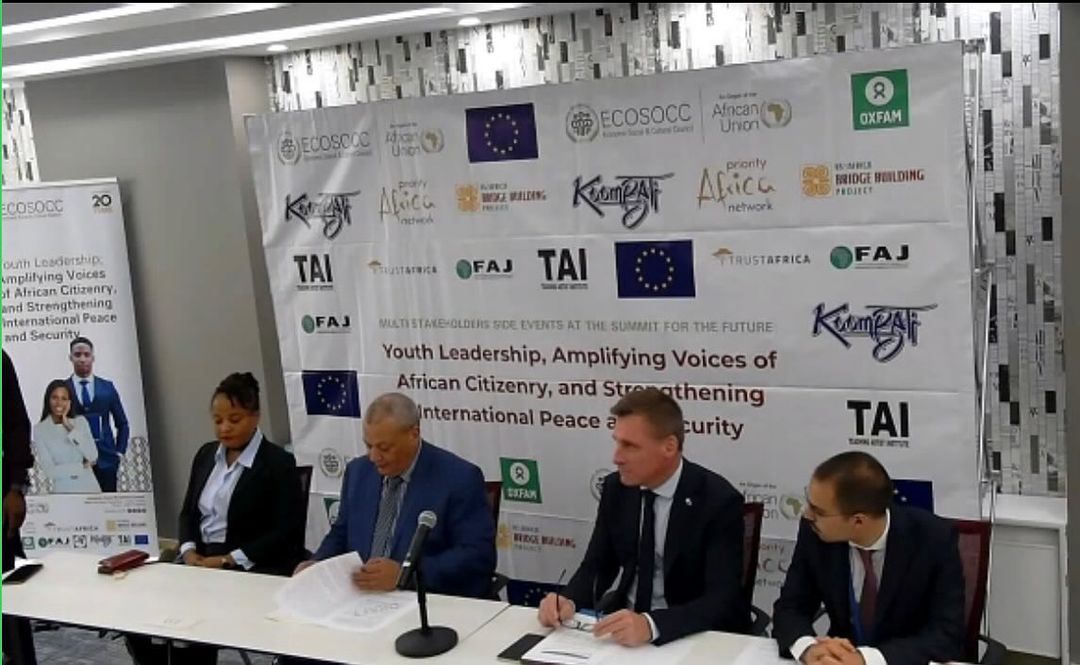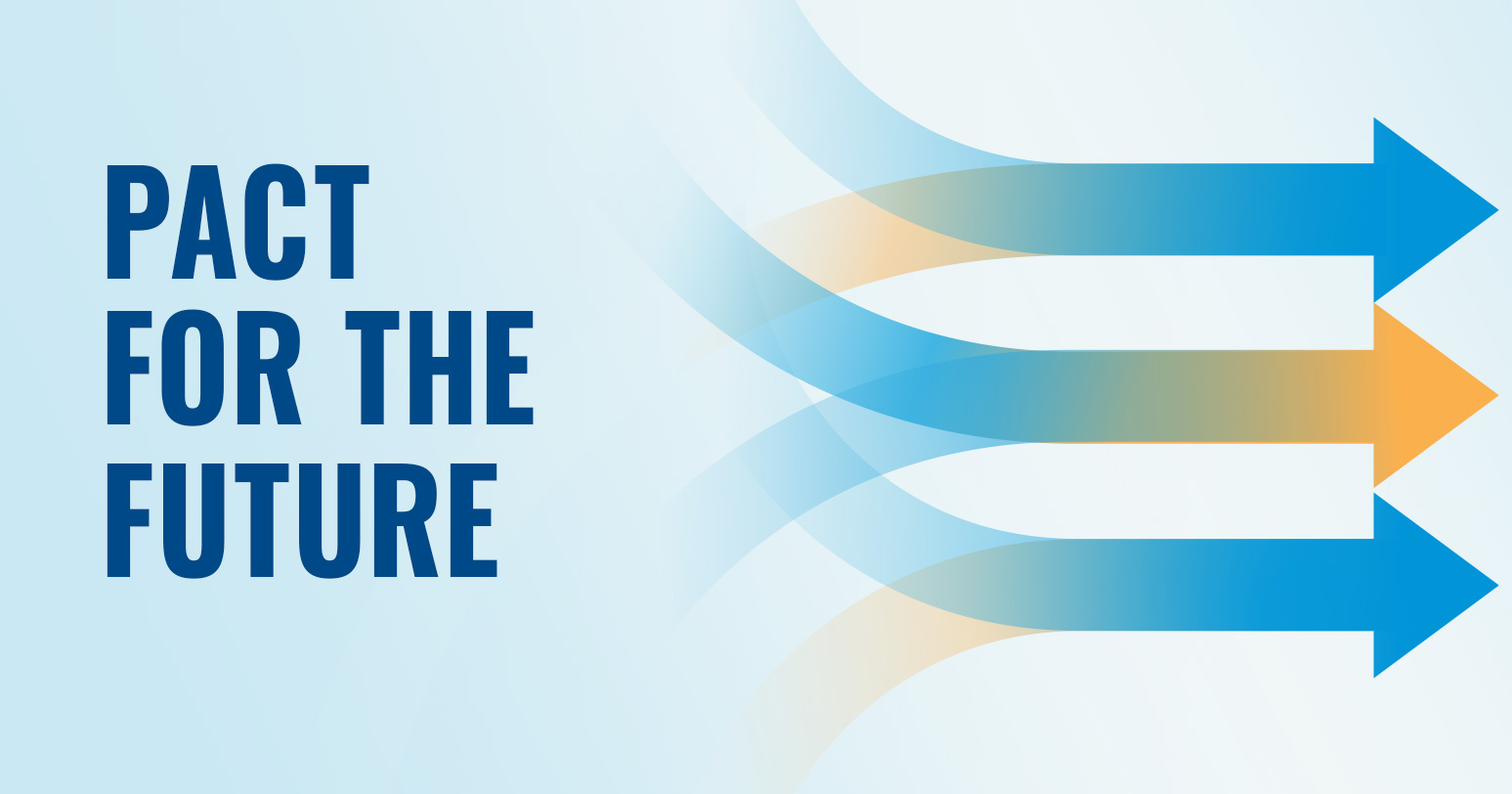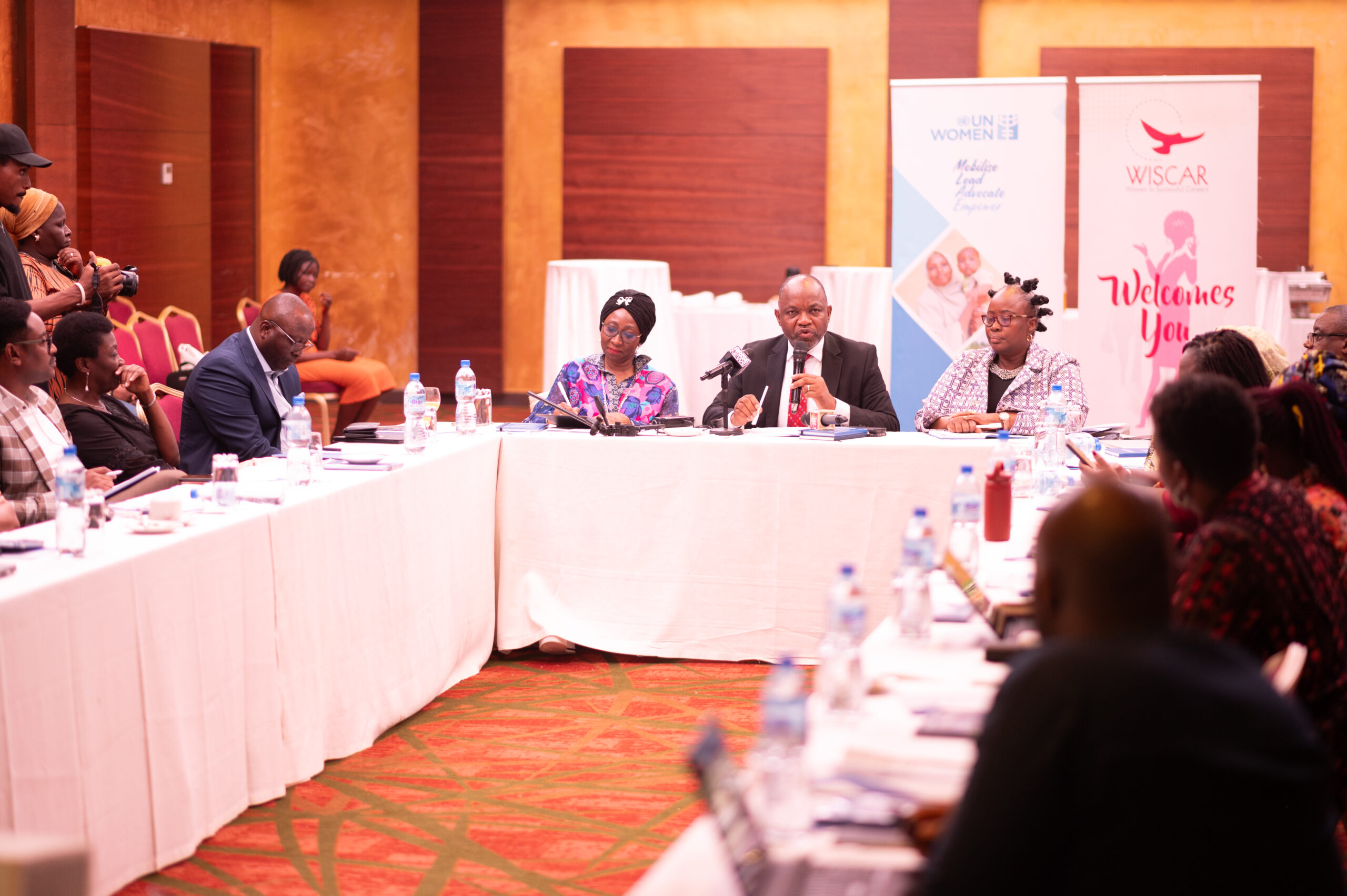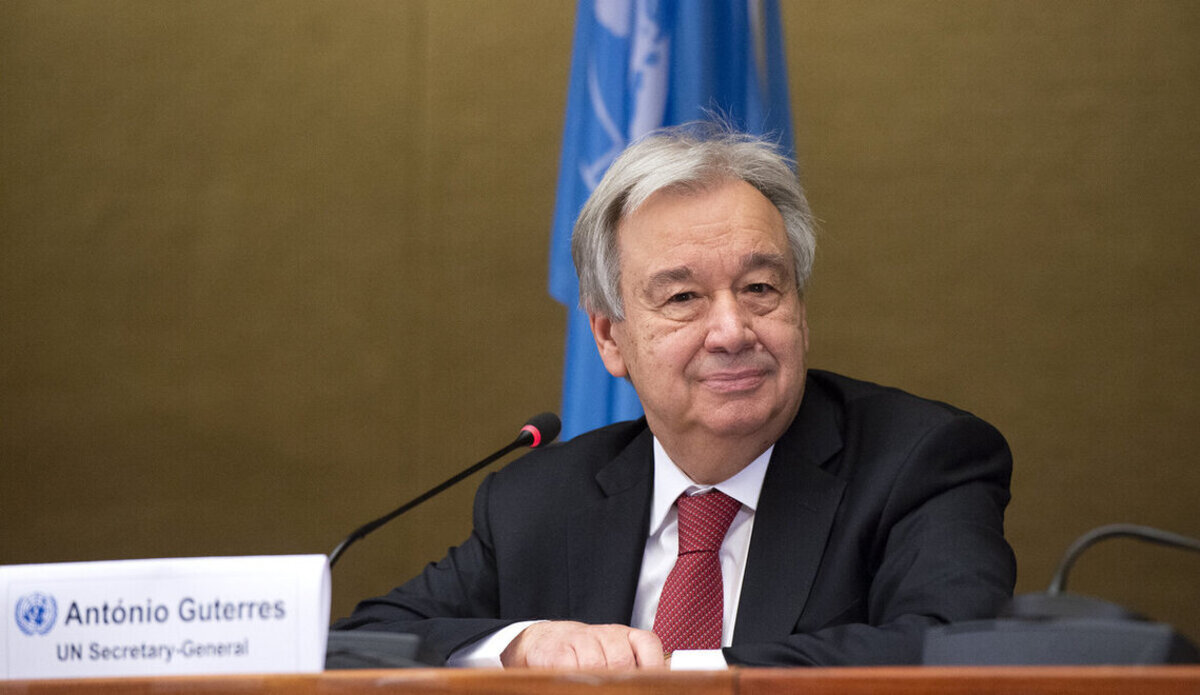The African Union Economic, Social and Cultural Council (AU ECOSOCC) and the European Economic and Social Committee (EESC) have jointly presented a groundbreaking Joint Declaration at the UN Summit of the Future, underscoring civil society’s pivotal role in global governance, sustainable development, and climate action.
This declaration builds on the Memorandum of Understanding (MoU) signed between the two institutions in Accra, Ghana, on July 17, 2024, which fosters cooperation on sustainable development, climate action, and enhancing civil society engagement.
Read also: UN adopts landmark ‘Pact for the Future’ to revamp global governance
AU ECOSOCC, EESC’s call for civil society inclusion in global governance
At the heart of the Joint Declaration is the call for a reinvigorated multilateral system that gives civil society a central role in decision-making processes at the global level. ECOSOCC and EESC emphasise that tackling pressing global issues such as climate change, poverty, and inequality requires a more inclusive and equitable approach. By empowering civil society, they aim to ensure that policies reflect the needs and aspirations of communities, particularly in developing regions such as Africa.
President Röpke of the EESC highlighted the importance of moving beyond symbolic consultations and fostering genuine dialogue with civil society to shape the future of global governance. He stressed that civil society’s role should not be a mere formality but a critical component of international decision-making. His call for robust multilateralism resonates with Africa’s quest for more excellent representation in global governance structures.
Accelerating Sustainable Development Goals (SDGs)
Most of the declaration focuses on accelerating progress toward the Sustainable Development Goals (SDGs). ECOSOCC and EESC call for comprehensive strategies to advance these goals, emphasising the need for structured civil society engagement in global development efforts. They advocate for better financial mechanisms to support sustainable development initiatives, particularly in Africa, where many countries face challenges securing the necessary funding for SDG-related projects.
The declaration also highlights the importance of addressing the disproportionate impacts of climate change on vulnerable populations, particularly women and girls. The joint statement calls for gender-responsive policies in climate action and development programs to ensure that the needs of all citizens are met during transitions to climate-neutral economies.
Read also: Ghana welcomes new battery swapping network launched by Kofa, PASH, Shell, and UK
Reforming the global financial system for Africa’s development
The declaration strongly advocates for reforming the United Nations by increasing the representation of developing countries within the UN Security Council, mainly from Africa. The institutions also advocate for a fair transition to climate neutrality, ensuring the shift to green economies is inclusive, just, and poverty-eradicating. This is crucial for African nations disproportionately affected by climate change yet contributing the least to global emissions.
This move aims to ensure a more inclusive decision-making process that accounts for the unique challenges faced by African nations.
Fostering youth and digital innovation
The declaration recognises the power of youth and digital transformation in shaping the future and calls for increased investment in science, technology, and digital governance. It underscores the necessity of harnessing digital innovations to benefit both people and the planet, encouraging more African and European youth involvement.
The collaboration between ECOSOCC and EESC represents a deepened effort to create a more just global system with Africa at its core. It reaffirms the importance of youth empowerment, gender equity, and sustainable development, paving the way for Africa’s strengthened leadership in global governance.





